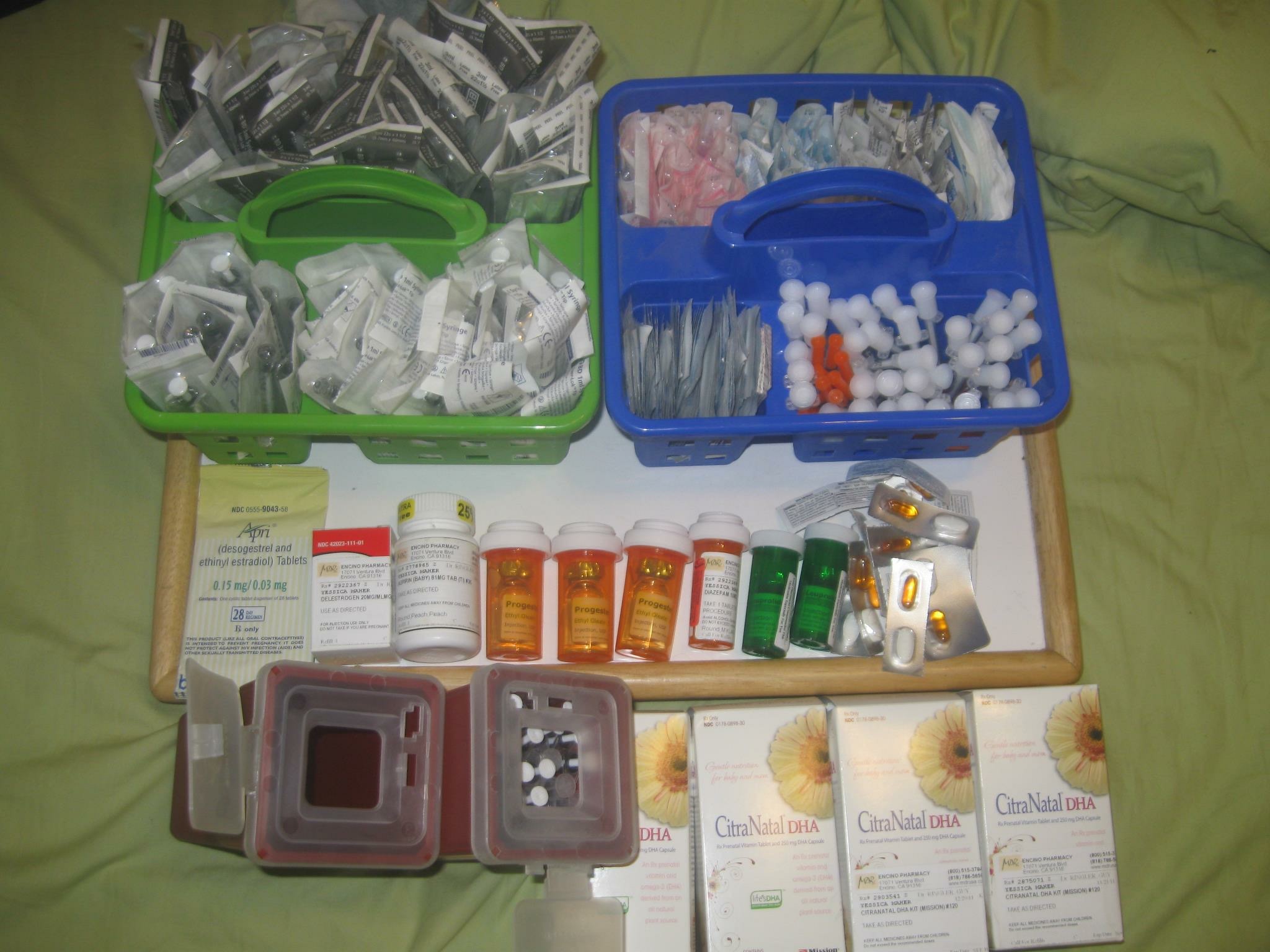This week I've had three separate conversations about IVF and I believe it's time to write about my surrogate pregnancies. What should a person expect with IVF? I have to jog my memory a bit.
I was an egg donor in 1999. It was a process to stop all hormones from working with birth control pills. Then I started hormones to ripen several eggs at once. When it all looks terrific by ultrasound, the eggs are taken out vaginally, with a catheter. I only did one cycle, and was able to produce 24 follicles and 12 eggs. But that was decades ago.
For both surrogacy and egg donation, there are profiles and matching with couples. There are contracts and financials organized. There are physical exams and meetings with therapists. There's a whole lot more, but I'll save it for another post.
The sad reality is how sharply the decline in fertility hits women after the age of 35. I believe by the age of 40, a woman's fertility hits a 50% drop. That reasoning made me not as careful when I got pregnant around February of this year. That, and not grasping that my late grandmother had her youngest at 50. Add to that my boyfriend's physique and the sex drive of a near 40 year old woman (So your fertility and sex drive swap, go with it.) and I felt like a randy teenager with no sense when we first started dating. We're careful now. Our miscarriage gave us a whole new appreciation of each other and the importance of caution and planning. Still, my advise to younger women is to get your career going, freeze your eggs, and have the life you choose when you're ready.
After my egg donation, I had my 3 boys at intervals of 18 months apart, then 3 years. In 2008 I delivered a boy after one IVF cycle for my first surrogacy. In 2010 I delivered a boy after 3 IVF cycles for my second surrogacy. In 2012 I delivered twin girls after 3 cycles of IVF for my final surrogacy. One of those involved a cancelled cycle because of the quality of the embryos that were thawed. It happens. I won't be a surrogate again. I loved it by my last surrogacy included a month hospitalization, preemies, and so much stress. Without a gall bladder and a genetic disposition to clot my blood like it's a super power (Factor Five Leiden), I can't handle the IVF drugs without risking a blood clot that could end up in my lungs before creating a heart attack or stroke.
In Vitro Fertilization includes drugs that will make you feel a little crazy. I had pills and shots. Sometimes the pills were suppositories. The goal is to perfectly balance your hormone levels to sustain a pregnancy
The goal is to first make your body stop producing all of the hormones that would normally get you prepared to have a baby, then purge your body to start over with a period. For this, I always started with birth control pills. Only active pills were taken until we were ready to start a cycle.
Taking meds meant setting a specific schedule and sticking to it. You need the constant hormone flow or you could miscarry. I would measure the medication in the needles, swapping out gauges of needles to draw the hormones in oil into the syringe, then swapping again for a gauge that I would use to put it in my body.
Some shots went into the fatty subcutaneous skin. This was done with diabetic sized needles while pinching the marshmallow fluff of my belly. Speaking of marshmallow fluff, too much makes getting pregnant difficult, so with a high BMI, you are less likely able to do IVF. At least as a surrogate.
The hormones in oil were injected in the upper, outer quadrant of my rear end. I would alternate sides. Rubbing in the oil after the shot helps disperse the medication, and prevent knots. It's been a few years and I still feel the scar tissue as particularly painful when I need shots there. As for the knots, they eventually went away, but not by the time of delivery. Sometimes the medication would seep right back out of the injection site. Sometimes I'd hit a bleeder and stain my clothes. Sometimes it was neat and perfect. Other times it was super painful like I hit a nerve. I heard of other women, lucky enough to have help with their shots but I did all of mine by myself, so yes, it's doable.
Sometimes the medication is a pill you insert as a suppository. This is not always a better feeling. You insert the capsule like you would a tampon. As the capsule dissolves, the powdered medication gets wet and can be irritating. Then you get to scoop it all out for your next dose.
When we started a cycle and I had already been on birth control pills, I started hormones to get the lining of my uterus thick and sticky, ready to accept the embryos that were placed inside of me with another catheter. Because the hormonal changes are influenced artificially, it's important to stay on the hormones for the first trimester, until the placenta is developed enough to sustain the pregnancy on its own. My last IVF cycle resulted in a twin pregnancy in 2012. Luckily, I kept great notes that I kept in a private Facebook group, and I can share with you when I start writing more about surrogacy. For now, I'm mining those pictures. Lucky you.
With IVF, you can also expect lots of blood draws to check hormone levels, and ultrasounds to check out your uterus. You'll communicate mainly with your nurses to get your medications on a schedule and teach you how to administer them. You'll meet doctors that will make sure everything is perfectly ideal before risking a precious embryo. Their job is to get you pregnant, and they don't take unnecessary risks with the embryos in their care.
Most of the time when I was having an embryo transfer, the doctors would try two to three at a time. The goal is one healthy pregnancy. I've learned some doctors like a full bladder because it tilts up the uterus and makes it easier to see. But it can be painful to have to pee and be prodded during the ultrasound. Some doctors will also like their patients on Valium. A relaxed uterus is more likely to be inviting to a new embryo. They'll follow you up until you are done with the first trimester, when you graduate to the regular OB doctor.
What do you do with a sharps container full of needles when you have no more fertility office visits coming up? Hospitals and pharmacies might take them. I noticed a box for medical waste in front of a police station once. Just know you'll have left overs. They would rather have an excess of medication, than ever have you run out when you need it.
Since the hormones are supposed to trick your body into thinking it's pregnant, you'll feel pregnant, even if you aren't. You'll feel hungry and bloated, and nauseous. Your breasts will be tender. You'll be sensitive and emotional.
And there's rest. That you'll need even if you don't want it.
Right after the embryos are transferred, you'll want to stay in bed and rest for a few days. Even after that, I found that IVF pregnancies were far more delicate than naturally conceived babies. I was more likely to experience spotting (bleeding) while carrying groceries with IVF.
At the end of it all, if you're lucky, you get a baby or two.









